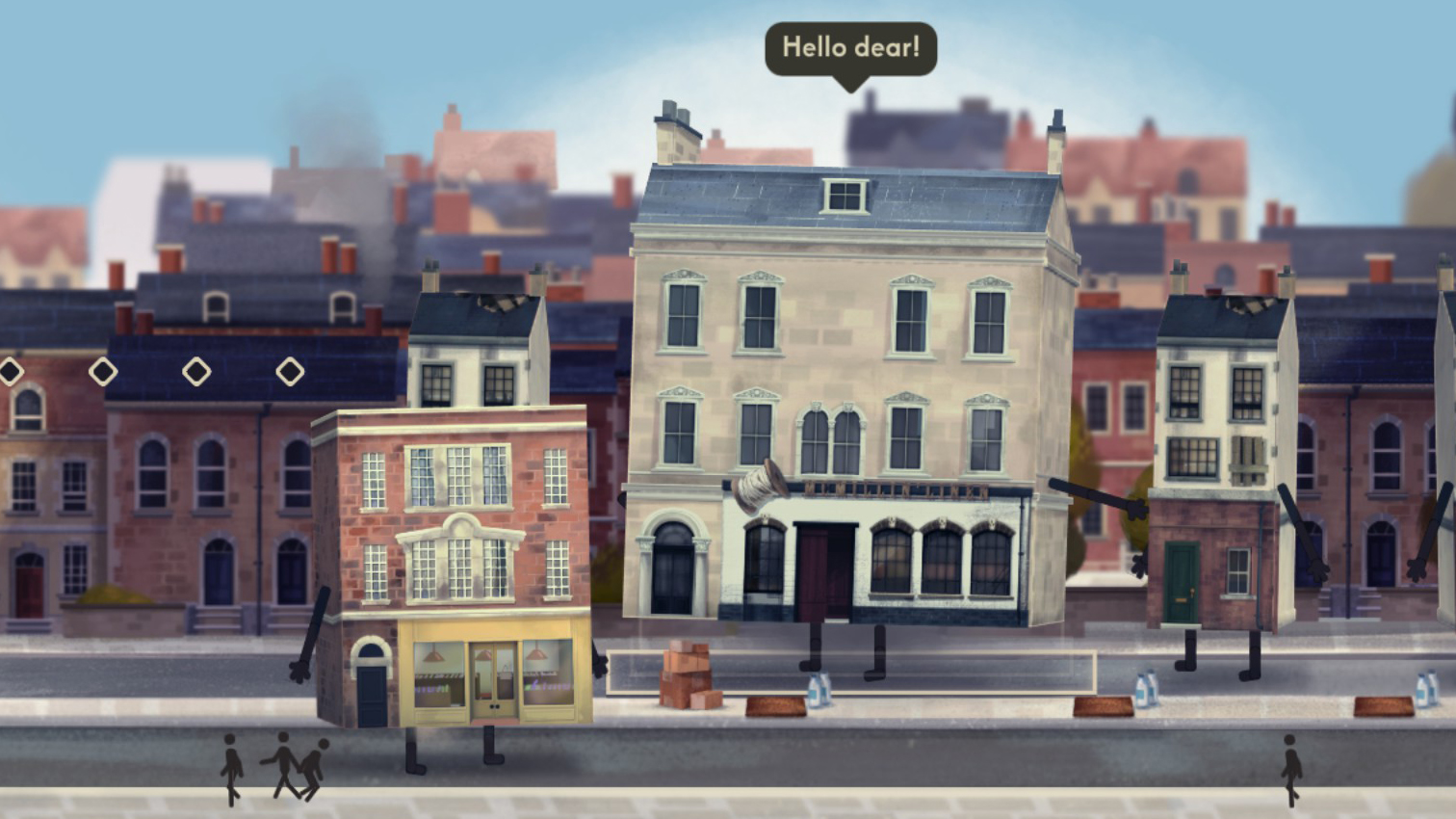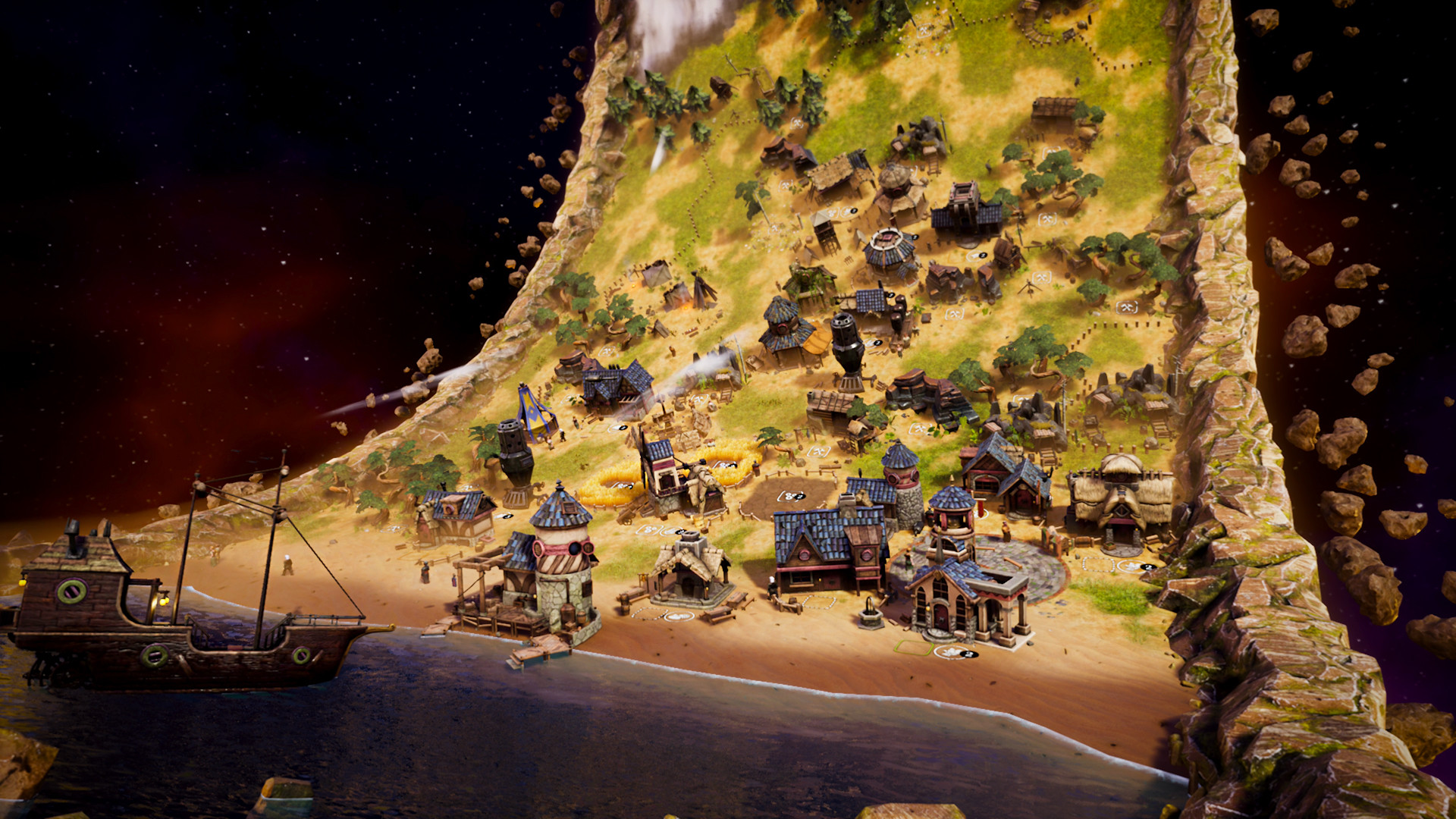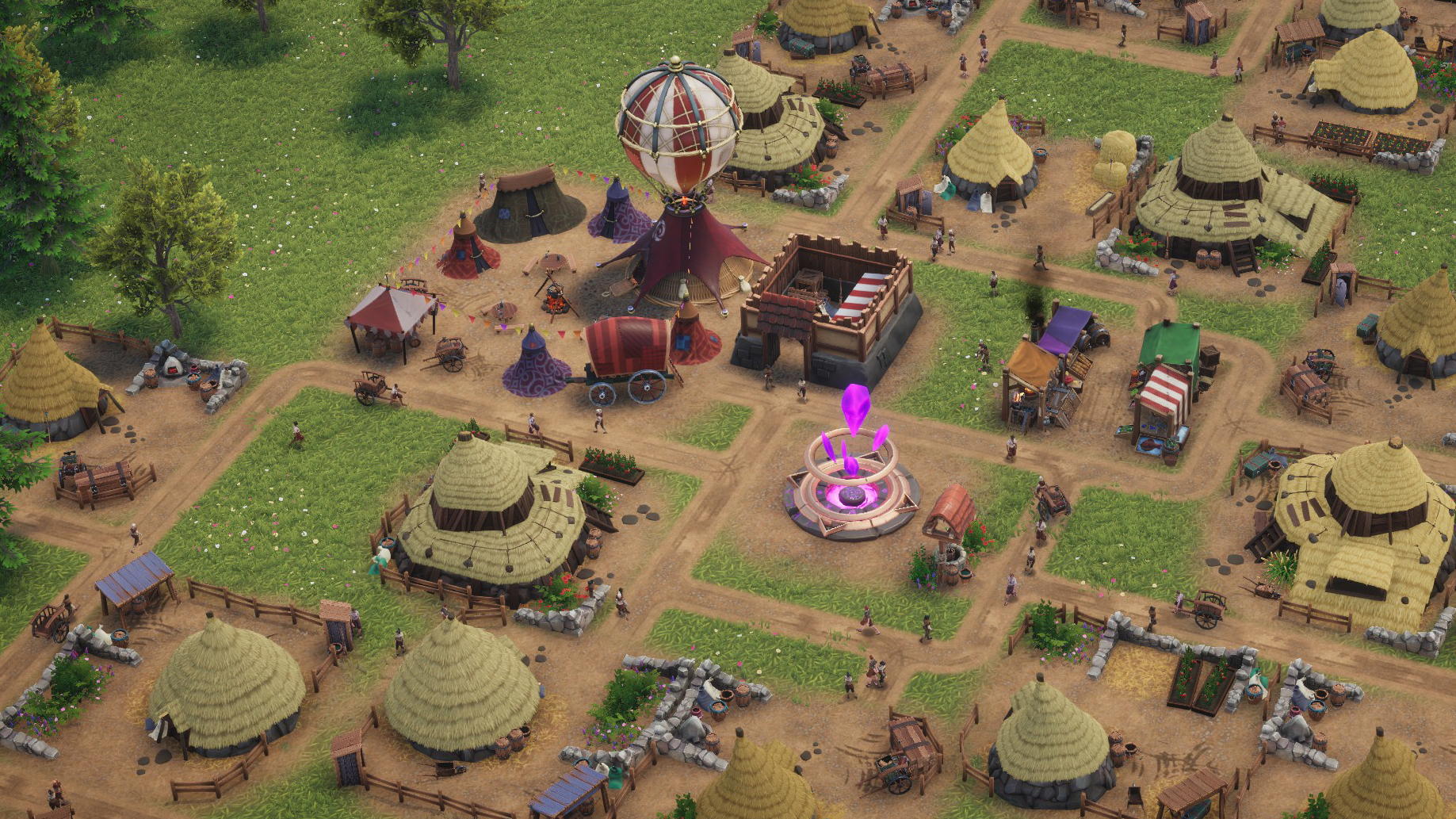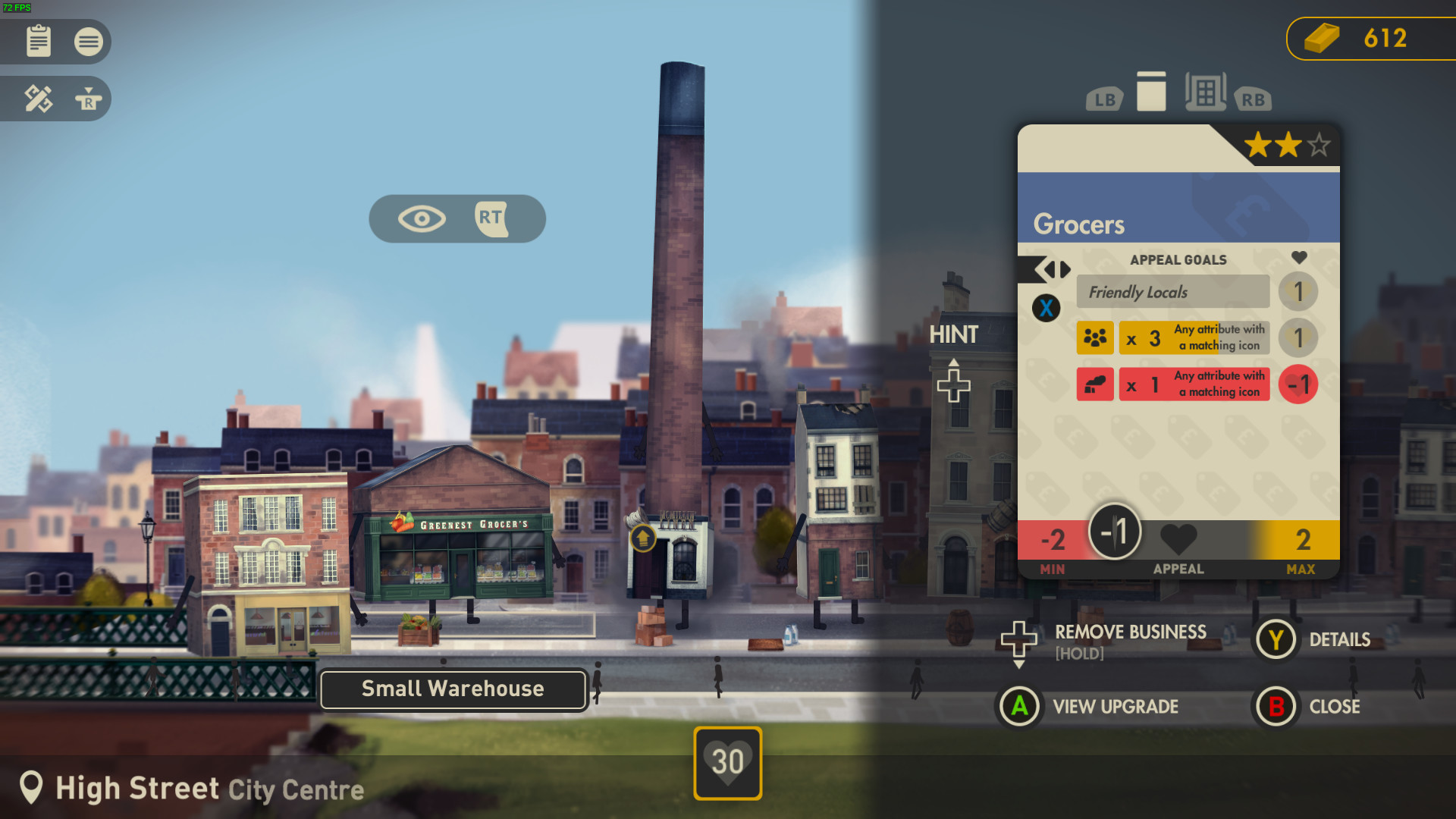City builders with a twist are my new favorite genre
Medieval ring worlds, buildings that walk and talk, and other ways city builders are creating interesting new rules.

I've drifted away from city builders over the last couple years, probably due to getting a bit bored with Cities: Skylines (it's a great game but it came out in 2015) and finding survival city builder Frostpunk a bit too taxing to play regularly (I love it, but it's incredibly brutal).
But it doesn't take much to rekindle my interest in growing and managing towns and cities, and lording over little buildings and littler citizens. And as much fun as that is, I always appreciate it when there's some sort of interesting twist along with the familiar city building and management systems.
Like, say, a city building game set on a medieval ringworld?

I have no idea how a medieval ring world can exist. Even with a lot of steampunk tech, it's hard to imagine the construction of a ring world in space by a society still sailing around in galleons. But who cares? Dice Legacy looks awesome and sounds interesting. It's a dice-based survival roguelike (and a city builder, somehow) where you spread your realm over (up? around?) the ring world, battling enemy factions, gathering resources, and leveling up your citizens.
Your dice aren't just for rolling, either: You can dunk them into a forge and combine them into more powerful dice as you try to conquer the procedurally generated ring world. Dice Legacy is due out sometime this year, and I love the way it looks. I'm just curious to learn how it all actually works.

If you're looking for a city builder that's a bit more traditional but still contains a few interesting twists, I've played a bit of Distant Kingdoms, which is currently in Early Access. It's a fantasy city building game where the hope is to someday create a harmonious city where elves, dwarves, orcs, and humans can live side-by-side instead of trying to kill each other.
Distant Kingdoms' early game is pretty standard. You build markets, sawmills, quarries, warehouses, and roads to connect them all. But it gets more interesting when it starts introducing some of the fantasy elements. You need to supply your city with a well to supply it with mana, and once it's flowing you can power magic portals that speed up travel through your city. Not just for citizens, but for supplies and materials too. A wagon full of stone enters a portal on the west side of town, and blinks over to the east side of town. That's handy! I definitely could have used some magic portals Cities: Skylines to solve some of my traffic problems.
The biggest gaming news, reviews and hardware deals
Keep up to date with the most important stories and the best deals, as picked by the PC Gamer team.
If you want to expand to a new hex on the map, you need to build a tavern to attract adventurers, then put together a party and send them out to clear out dungeons and ruins before you can start growing your city there. I'm not too far into Distant Kingdoms yet, but I'm enjoying toying around with fantasy concepts in a city management system.

Also out now is Buildings Have Feelings Too! which has a bigger twist than most. The buildings are alive, and you play as a building yourself. Your job is to bring new life to a decaying town by renovating buildings and figuring out what makes them happy.
For instance, the local pub wants more customers, so you build an apartment building. A cafe might want an accounting firm built nearby so it gets a nice lunchtime rush. And not only do you build and upgrade buildings, you move them around for optimal placement by selecting them and then running down the street. The building will scamper after you until you place it in a new spot. It's friggin' adorable. It's a puzzle game, really, that centers around organization, but it's still a city builder, too. Just a very unusual one.
There's yet another promising city builder on the horizon. Patron isn't just a city management game but a society sim, too. You're not only trying to keep people happy by fulfilling basic needs like shelter, food, and entertainment. You also have to deal with (gulp) their politics.
"Each individual citizen in the town has his needs, desires and issues troubling him or making him happy," reads Patron's Steam page. "Some citizens are more concerned with immigration, while others are more aggravated by tax-related issues." Religion, public health, and safety are other concerns your citizens may have, and if people get too unhappy with how you're handling those issues, there could be protests and uprisings.
How the society simulation portion of Patron will work isn't really spelled out, and it's not due to release until later in 2021. But it sounds intriguing.
And then there's Gord, which may be the biggest departure from standard city building on this list. Revealed last month, Gord looks like a real-time strategy adventure with exploration, quests, combat, monsters, and survival elements. But there's a city builder packed into the dark fantasy, too, as you build your gord (which means settlement) from a tiny encampment into a heavily defended fortress.
That's a lot to look forward to, and the more mashups between city builders and other genres, the better. In fact, I just remembered I played a city builder not long ago where you manage a colony of beavers in the post-apocalyptic future. It's a lumberpunk city builder called Timberborn. See, there's more of them out there than I even realized.

Chris started playing PC games in the 1980s, started writing about them in the early 2000s, and (finally) started getting paid to write about them in the late 2000s. Following a few years as a regular freelancer, PC Gamer hired him in 2014, probably so he'd stop emailing them asking for more work. Chris has a love-hate relationship with survival games and an unhealthy fascination with the inner lives of NPCs. He's also a fan of offbeat simulation games, mods, and ignoring storylines in RPGs so he can make up his own.

